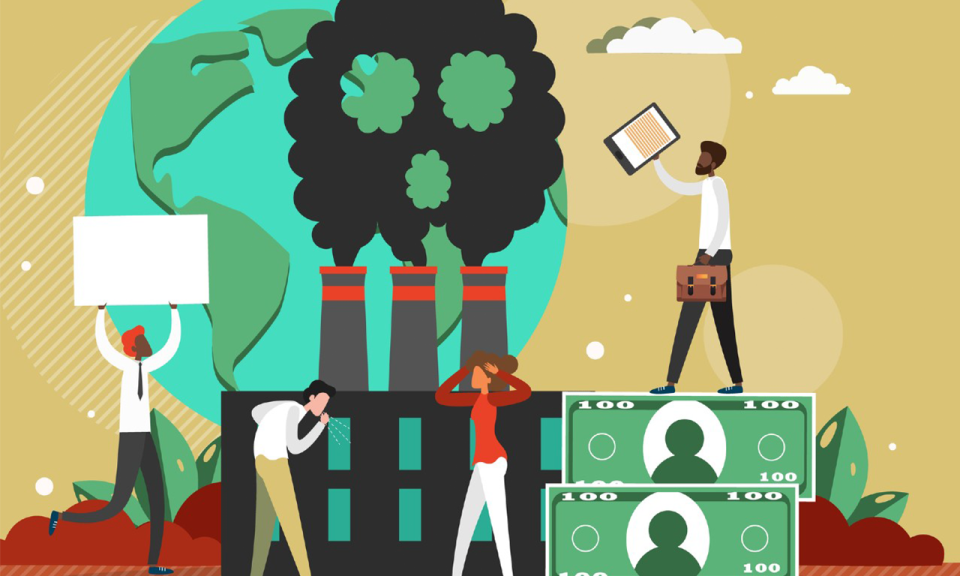Affect of Climate Change On Companies
Sep 05, 2022 By Susan Kelly
It's not something new that climate change will affect businesses, just like every different aspect of our life. Actually, "Climate Change as Systemic Financial Risk" was even used as the subject of a keynote address addressed to regulatory officials by Securities and Exchange Commissioner Allison Herren Lee towards the end of 2020. SEC isn't in the middle of U.S. environmental policy. However, since 2010, the SEC has mandated public companies to inform shareholders of any issues connected to climate change that could impact their operations.
The regulations and U.S. environmental policy, in general, are the subjects of shifts as the Biden administration takes it on as crucial legislation, specifically in 2022. Biden's ambitious domestic policy, known by the title "Build Back Better," is currently part of the larger Inflation Reduction Act of 2022 that contains $300 billion allocated for reducing carbon emissions and promoting renewable energy sources. This legislation was approved by Congress and was signed into law by Biden as President Biden on August 16, 2022.
Capital Expenditures for Emission Control Systems
Certain companies have been forced to shell out substantial dollars on the upgrading of polluting facilities, as well as on installing emission controls to meet the regulations regarding carbon dioxide emissions. The most affected businesses by these rules include utility and energy firms that operate refineries and power plants.
Cap and Trade Rules
Cap-and-trade policies are designed to reduce carbon emissions by limiting how many pollutants a business can produce and permitting companies to sell the allowances they have not used to other businesses. Although many countries have enacted similar programs, cap-and-trade policies have been a source of controversy across the U.S. California is the state that has it. California offers its own, one of the first and largest, with mixed outcomes.
The program in California is criticized because it allows the largest and wealthiest corporations to go on with the same business practices and even pollute more. At the same time, bank pollution allowances are purchased from other corporations. On the other hand, ten states from the northeast have set up their regional cap-and-trade consortium. The U.S. Congress rejected the last cap-and-trade proposal from the federal government during the Obama administration.
Higher Prices for Goods and Services
Even companies that aren't involved in the energy industry could be affected indirectly by the energy regulations and the cost they create. The vast changes in prices for transportation and utilities have to be passed along by the suppliers. The middlemen companies must relay them at the expense of their consumers.

Changing Weather Patterns
The report of the SEC for 2010 states the fact that climate changes are likely to alter weather patterns across the globe. This fact has been reiterated by various other sources, such as those from the United Nations, NASA, and the American Meteorological Society. As the weather worsens, storms could become more intense, resulting in various negative effects for companies. The effects could go over the apparent losses to insurance businesses. International shipping is likely to become riskier. The long-established agricultural areas could be devastated. Communities along the coast and infrastructure may be repeatedly affected.
Changing Demand for Goods
Alterations in consumer demand for certain goods are one possible outcome of the interaction between price swings and varying precipitation and temperature patterns. There may be less demand for winter-related items like ski gear and heating oil. On the other hand, environmentally conscious businesses are benefiting from the emergence of new business prospects. Patagonia, Seventh Generation, and Dr. Bronner are just a few of the successful businesses that owe their success to the fact that they cater to ecologically concerned customers in their purchasing decisions.
Obligations Under Foreign Regulations
A lot, if not all, big public companies operate overseas as well as at home. And they are within the scope of a range of climate regulations and laws regardless of whether or not they are part of the U.S. has adopted them. For example, it is the case that there is a possibility that the U.S. withdrew from the Paris Agreement on climate change in 2017, while 200 other countries are part of the accord. Some envision the global market and cap system that could be a follow-up of Kyoto. Kyoto Treaty, which expired in 2012. American companies are bound by the laws of that country when they do business in foreign countries.

Changing Public Perceptions
Reputation is the most important factor for firms; nowadays, companies seek to establish reputations for their environmental responsibility. BP is one of the companies which has a significant stake in this direction by launching their "Beyond Petroleum" campaign. It also invests billions of dollars in renewable energy projects in demonstrating its credibility. "Going green" is, increasing, a smart business decision. Salesforce, Nike, Apple, and Disney are among the major companies which recently announced significant green initiatives.

Susan Kelly Sep 23, 2022
Learn: Who Is Eligible for a Social Security Death Benefit?

Triston Martin Oct 28, 2022
What Is the Best Time to Restructure your Business?

Triston Martin May 27, 2023
Get Your Bank Statement Here's How

Susan Kelly Nov 04, 2022
Meaning of House Poor

Triston Martin May 24, 2023
Advantages of Online Banking

Triston Martin Aug 01, 2023